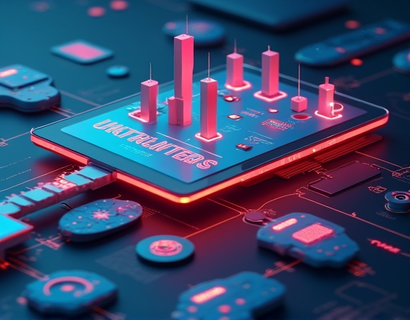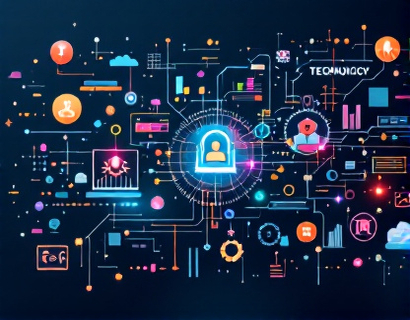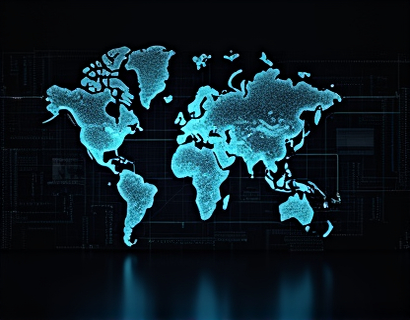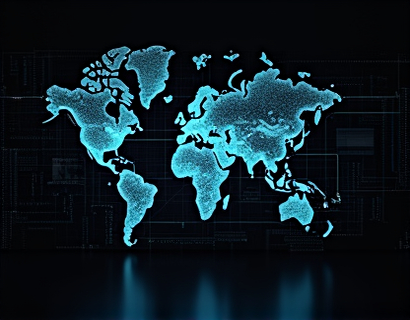Decentralized DAO Launch: Streamlining Autonomous Venture Creation with Advanced Tools and Resources
The emergence of Decentralized Autonomous Organizations (DAOs) represents a paradigm shift in the way businesses and ventures are created and managed. By leveraging blockchain technology and smart contracts, DAOs offer a novel approach to governance, ownership, and operation, enabling a more decentralized and transparent structure. However, the process of launching and managing a DAO can be complex and daunting, involving numerous technical, legal, and strategic considerations. To address these challenges, an advanced platform has been developed to streamline the creation and management of DAOs and autonomous ventures, providing a comprehensive toolkit for seamless integration and operation.
This platform is designed to empower businesses and entrepreneurs to innovate and lead in the decentralized space. It offers a suite of advanced tools and resources that simplify the startup process, ensuring that even those with limited technical expertise can successfully launch and manage a DAO. The platform's primary goal is to demystify the complexities associated with DAOs, making it accessible and feasible for a broader range of entities to adopt this transformative model.
Key Features of the Platform
The platform provides a robust framework for the entire lifecycle of a DAO, from initial setup to ongoing management. Here are some of the key features that make this platform an indispensable resource for anyone looking to venture into the decentralized space:
- Template-Based Setup: The platform offers pre-built templates for various types of DAOs, including governance, investment, and community-driven models. These templates serve as a starting point, reducing the time and effort required to set up a DAO from scratch.
- Smart Contract Generation:
- Governance Tools:
- Resource Management:
- Community Engagement:
- Compliance and Legal Support:
Automated smart contract generation is a critical feature, ensuring that the foundational code for the DAO is secure, efficient, and compliant with best practices. The platform uses advanced cryptography and testing protocols to generate smart contracts that are both functional and resilient against potential vulnerabilities.
Effective governance is the cornerstone of any DAO. The platform provides tools for creating and managing governance proposals, voting mechanisms, and decision-making processes. These tools ensure that all stakeholders have a voice and that decisions are made transparently and democratically.
Managing resources, including tokens, funds, and assets, is simplified through the platform's resource management tools. These tools facilitate the allocation, distribution, and tracking of resources, ensuring that the DAO operates efficiently and transparently.
Building and maintaining a strong community is essential for the success of a DAO. The platform includes features for fostering community engagement, such as discussion forums, event planning, and communication channels. These tools help create a vibrant and active community around the DAO.
Navigating the legal landscape of DAOs can be challenging. The platform offers resources and guidance to help ensure compliance with relevant laws and regulations, reducing the risk of legal issues and providing peace of mind for stakeholders.
Benefits of Using the Platform
The advantages of using this advanced platform for launching and managing a DAO are numerous. Here are some of the key benefits:
Firstly, the platform significantly reduces the time and cost associated with setting up a DAO. By providing pre-built templates and automated tools, it streamlines the initial setup process, allowing organizations to focus on strategic planning and execution rather than getting bogged down in technical details.
Secondly, the platform enhances transparency and trust. All transactions and decisions within the DAO are recorded on the blockchain, providing an immutable and transparent ledger. This level of transparency builds trust among stakeholders and reduces the risk of fraud or mismanagement.
Thirdly, the platform promotes inclusivity and decentralization. By lowering the barriers to entry, it enables a wider range of individuals and organizations to participate in the creation and governance of DAOs. This democratization of venture creation fosters innovation and diversity, driving progress in the decentralized space.
Additionally, the platform's comprehensive toolkit ensures that DAOs are well-equipped to handle various operational tasks. From governance and resource management to community engagement and compliance, the tools provided help maintain the DAO's efficiency and effectiveness over time.
Case Studies and Success Stories
To illustrate the practical applications and success of the platform, consider the following case studies:
A financial services firm decided to launch a decentralized investment DAO to diversify its portfolio and engage its clients more directly. Using the platform's template-based setup and smart contract generation tools, the firm was able to create a fully functional DAO within weeks. The governance tools enabled clients to propose and vote on investment strategies, while the resource management features ensured efficient allocation of funds. The transparency provided by the blockchain ledger built trust among participants, leading to high engagement and successful investment outcomes.
Another example is a technology startup that used the platform to create a community-driven DAO for open-source project development. The platform's community engagement tools facilitated collaboration among developers worldwide, while the governance tools allowed the community to make decisions on project direction and resource allocation. The result was a thriving ecosystem of contributors and a robust, community-supported product.
Future Trends and Innovations
The landscape of DAOs and decentralized ventures is rapidly evolving, with several trends and innovations on the horizon. Here are some key areas to watch:
First, the integration of artificial intelligence (AI) and machine learning (ML) into DAO governance and decision-making processes is becoming more prevalent. AI-driven analytics can provide insights and recommendations, enhancing the efficiency and effectiveness of governance decisions.
Second, the development of interoperability protocols is crucial for the growth of the decentralized ecosystem. Interoperability allows different DAOs and blockchain networks to communicate and collaborate seamlessly, opening up new possibilities for cross-DAO projects and initiatives.
Third, the rise of layer 2 solutions and scalability enhancements will address some of the current limitations of blockchain technology, making DAOs more efficient and cost-effective. These advancements will enable DAOs to handle larger volumes of transactions and support more complex operations.
Lastly, the increasing adoption of decentralized finance (DeFi) tools and platforms within DAOs is transforming how these organizations manage finances and offer financial services. The integration of DeFi components can provide DAOs with access to a wide range of financial instruments and services, further enhancing their capabilities and appeal.
Conclusion
The launch and management of Decentralized Autonomous Organizations (DAOs) no longer need to be a daunting task. With the advanced tools and resources provided by this platform, businesses and entrepreneurs can streamline the process, ensuring successful and sustainable DAO creation and operation. By embracing this technology, organizations can unlock new opportunities for innovation, collaboration, and growth in the decentralized space.
As the decentralized ecosystem continues to evolve, the role of DAOs will become increasingly significant. The platform stands as a vital resource, empowering entities to harness the full potential of DAOs and contribute to the ongoing transformation of the business landscape.










































